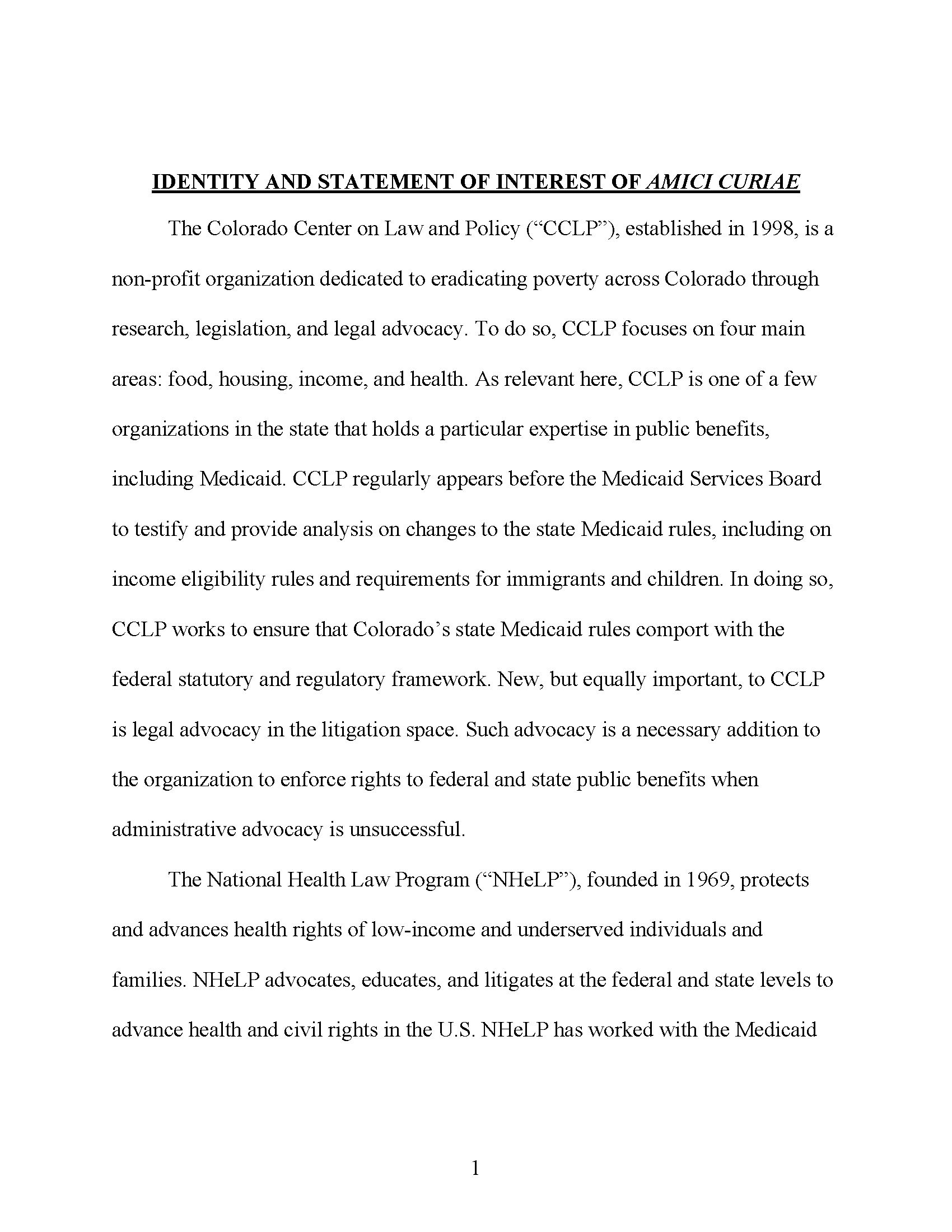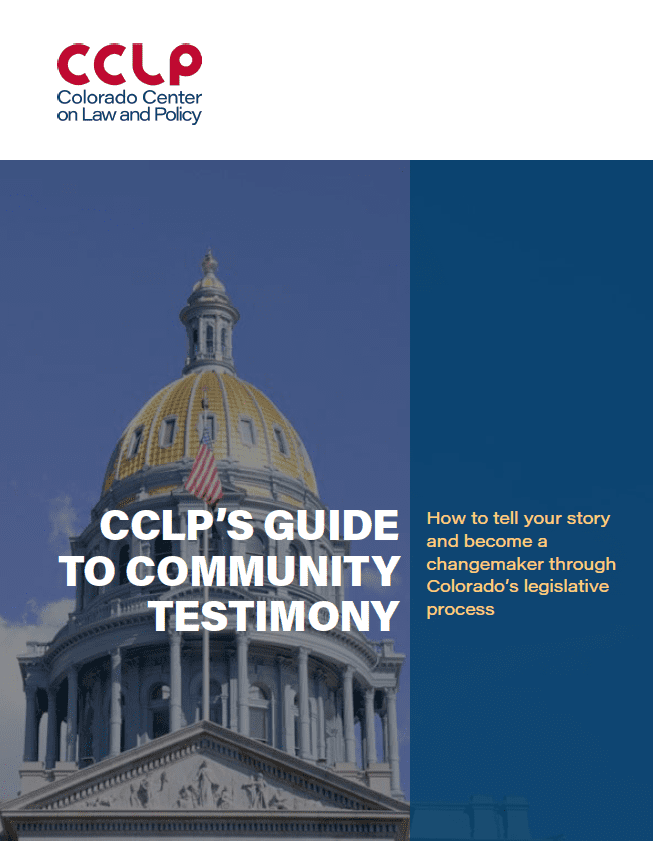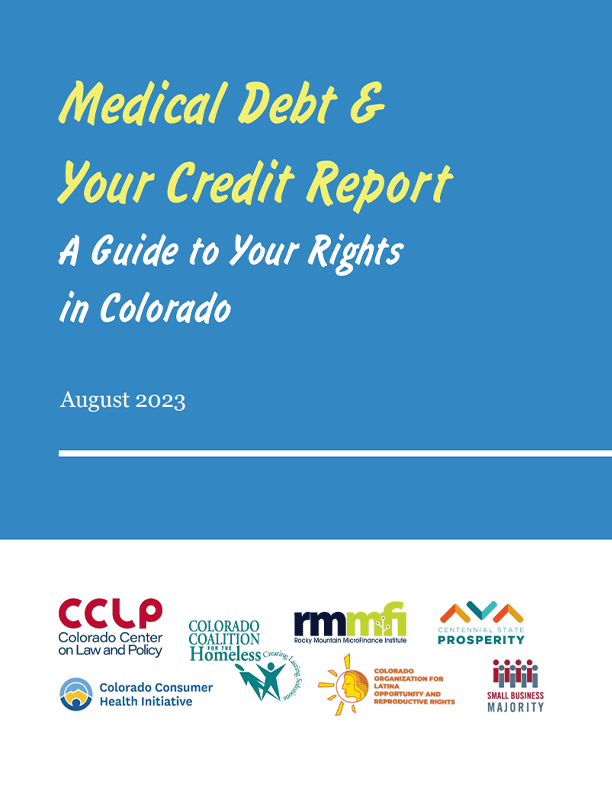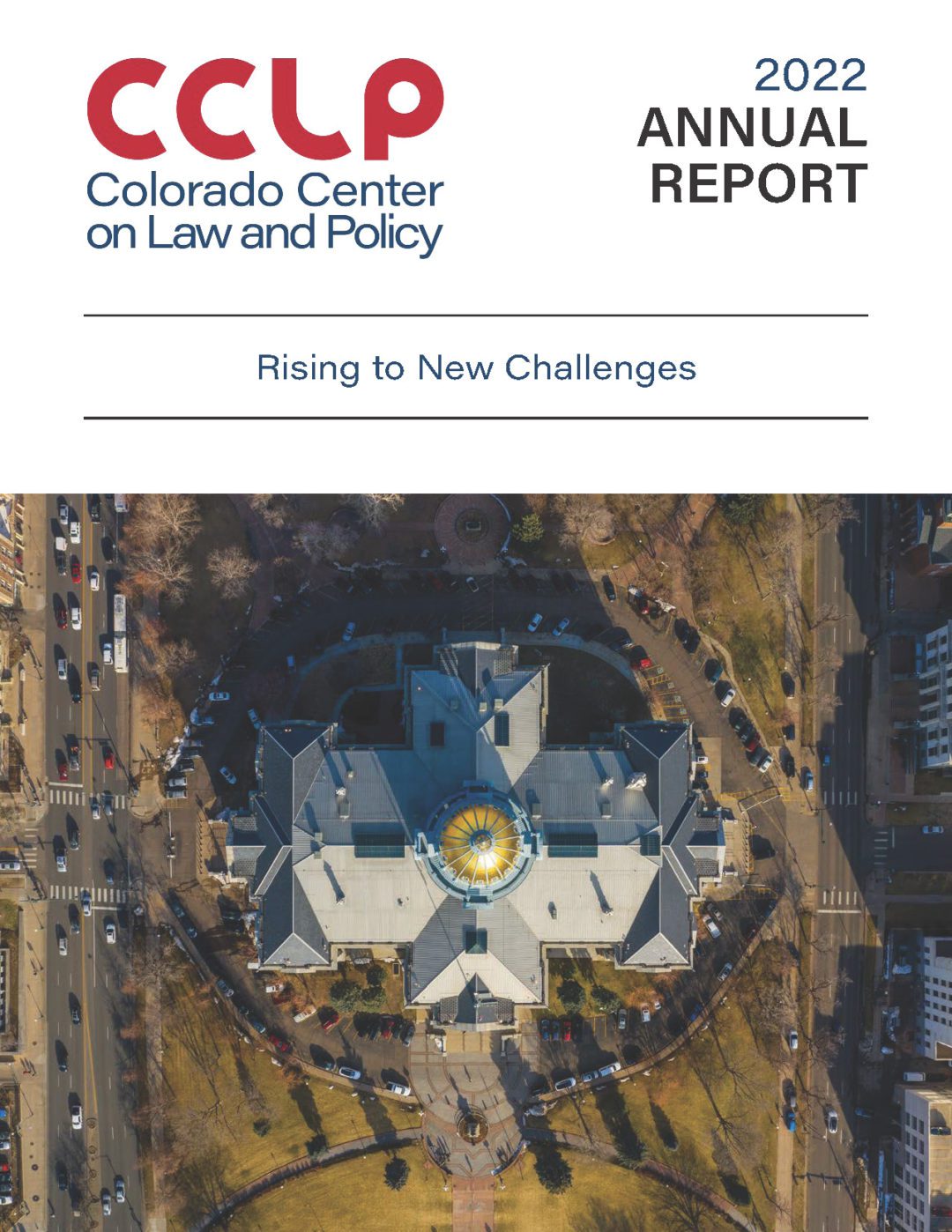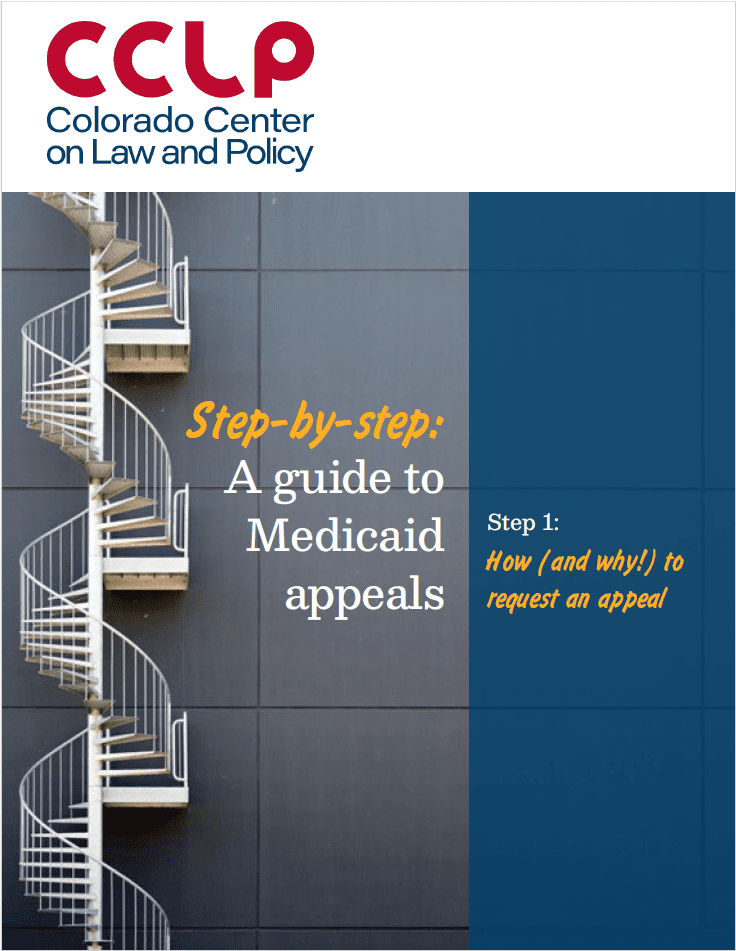This amicus brief was submitted by CCLP to the Colorado Supreme Court in May of 2021. This version has been redacted to protect the personal information of the defendant.
Summary of the argument
Respectfully, the Court overlooked crucial legal issues surrounding Medicaid, including federal law and regulations and the case law interpreting them. A detailed statutory and regulatory scheme governs the Medicaid program and sets forth beneficiary rights, eligibility and service coverage, and financial and administrative requirements. This robust framework is intended to ensure that eligible individuals receive the services they need and to safeguard expenditure of public funds. Federal law recognizes that individuals have the right to a fair hearing to challenge Medicaid denials of eligibility or services. It is thus well settled that Medicaid beneficiaries seeking coverage of services have a protected property interest in those services.
For these reasons, individuals who meet the criteria for eligibility are entitled to Medicaid benefits, even if information is missing or factual discrepancies are included in their applications. Eligibility is complex. Medicaid contains more than sixty distinct eligibility categories – some mandatory and others optional – and all rest on complex financial and nonfinancial criteria. Congress recognized the chaos that often surrounds the lives of Medicaid beneficiaries, such as unreliable income streams, inconsistent household makeup, and homelessness. The law therefore accounts for these circumstances and allows for flexibility on applications. The Court’s decision in this case ignores those realities and criminalizes individuals who are entitled to Medicaid benefits. As a policy matter, the dissent was correct in surmising that the decision will “cause draconian consequences for individuals charged with public benefits theft.” [REDACTED] Amici therefore support [REDACTED]’s petition for rehearing and respectfully asks the Court to revisit its opinion and reject the total value approach.






